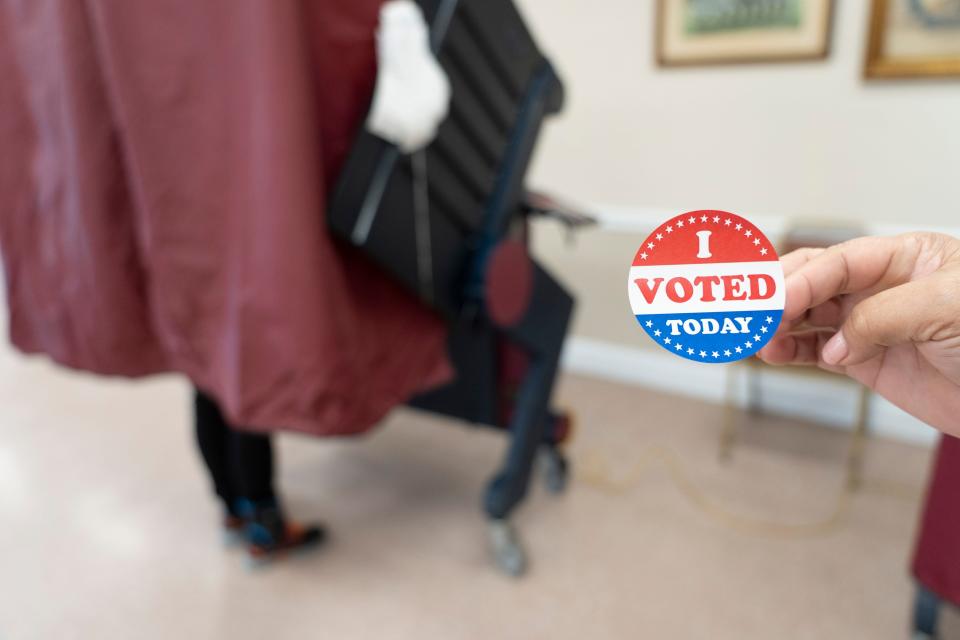Can New Jersey benefit from a lowered voting age? | Opinion
Young people — and some politicians — in New Jersey are advocating to lower the voting age to 16 for local elections. It’s an idea that has taken off around the country, with several municipalities in Maryland already allowing those 16 and 17 to vote in local elections and other cities considering the change. Lowering the voting age can help to engage young people and create lifelong voters. New Jersey’s laws would allow a city to adopt this reform.

A councilmember in Westfield was spurred to consider the idea during his election campaign last year when his son, 17, expressed frustration about his inability to vote for his dad. High schoolers have joined the effort and created a grassroots campaign, Vote16NJ.
But is it legal? Could New Jersey cities and towns legally lower the voting age?
As I explained for the Vote16 Research Network, the answer is yes.
The U.S. Constitution does not pose a hurdle. The 26th Amendment lowered the voting age to 18, but it says nothing about states or localities setting an age that is even lower.
The question therefore comes down to New Jersey’s constitution and laws, which are best understood as allowing a municipality to lower the voting age to 16 for local elections.
First, the state constitution discusses voting as a positive right: “Every citizen of the United States, of the age of 18 years, who shall have been a resident of this State and of the county in which he claims his vote 30 days, next before the election, shall be entitled to vote for all officers that now are or hereafter may be elective by the people . . . .” That is, the constitution says that “every citizen” who meets the age and residency requirements “shall be entitled to vote.” This language confers broader voting rights than the U.S. Constitution, which does not affirmatively grant the right to vote and points to state sources to determine voter eligibility.
Importantly, this state constitutional language grants the right to vote instead of limiting it to certain individuals. Thus, the constitution confers voting rights to those who are 18 and meet the residency requirements, but it does not explicitly exclude anyone from voting. The voting qualifications are a floor, not a ceiling. Those who are 18 and residents are voters in the state, but nothing in the constitutional language suggests that the state cannot confer voting rights to additional people.
New Jersey’s voter eligibility statute points to this state constitutional language, granting the right to vote to “every person possessing the qualifications required by Article II, paragraph 3, of the Constitution of the State of New Jersey,” except for those who “lack the capacity to understand the act of voting” or who are incarcerated after a conviction. Given the grammatical structure, this formulation once again is best understood as a floor, not a ceiling, of voter qualifications.
Second, New Jersey law offers broad home rule authority, or the power of self-governance, to its municipalities that are “governed by an optional form of government.” That expansive authority is best understood as allowing a locality to lower the voting age to 16 for local elections. Although home rule is not mentioned in the state constitution, a statute provides that “[t]he general grant of municipal power contained in this article is intended to confer the greatest power of local self-government consistent with the Constitution of this State.” Another provision allows localities to “[o]rganize and regulate its internal affairs, and to establish, alter, and abolish offices, positions and employments and to define the functions, powers and duties thereof and fix their terms, tenure and compensation.”
Combining these provisions together reveals that New Jersey law allows municipalities to lower the voting age to 16 for local elections. The state constitution broadly confers the right to vote, listing qualifications of those who “shall” be voters but placing no limits on expanding upon those qualifications. State law on voter eligibility simply points to the state constitution’s rules. And state law further gives municipalities “the greatest power of local self-government.” That power should include expanding the electorate by lowering the voting age if a locality so chooses.
Lowering the voting age to 16 can have many benefits for our democracy, engaging young voters while they are still in school and therefore are easier to register and educate. Yes, improving civics education is a must. The places that have adopted this reform — both in Maryland and around the world — have seen great success. New Jersey has the proper legal structure that would allow its municipalities to join this democracy-enhancing effort.
Joshua A. Douglas is a law professor at the University of Kentucky J. David Rosenberg College of Law. He is the author of "Vote for US: How to Take Back Our Elections and Change the Future of Voting.” Find him at www.joshuaadouglas.com and follow him on Twitter @JoshuaADouglas.
This article originally appeared on NorthJersey.com: Voting age New Jersey should be lowered

